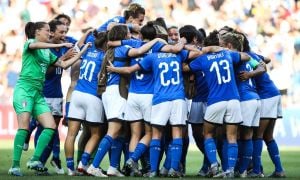On February 17, Russia's Foreign Minister Sergey Lavrov stated unequivocally there could be "no thought of" territorial concessions to Ukraine, signaling Moscow’s hardline stance as it approaches upcoming peace talks. These discussions, set to occur with U.S. representatives in Saudi Arabia, come amid Russia's illegal annexation of Crimea and various Ukrainian regions since 2014, which remains the crux of the broader conflict.
Lavrov's comments reflect Russia's refusal to compromise over territories occupied during their full-scale invasion of Ukraine, particularly the regions of Kherson, Zaporizhzhia, Donetsk, and Luhansk. Despite Russia claiming control over these areas, Lavrov acknowledges they do not entirely govern all parts, including two key regional capitals—Kherson and Zaporizhzhia. He pointedly noted, "Territorial concessions to what is now called Ukraine were made by the Soviet leadership during the formation of the USSR," as reported by Reuters.
This uncompromising stance has raised eyebrows, especially as it was revealed Lavrov, alongside Kremlin foreign policy advisor Yuri Ushakov, would meet with U.S. officials, including State Secretary Marco Rubio and National Security Adviser Mike Waltz. Kremlin spokesman Dmitry Peskov confirmed these discussions, expected to focus on restoring the complexity of Russian-American relations. The U.S. seeks not only to engage Russia but also to include Ukrainian perspectives, stressing President Volodymyr Zelensky's voice is pivotal to any viable peace negotiations.
U.S. President Donald Trump even suggested the potential for European countries to purchase American weapons for Ukraine, indicating both the strategic and military dimensions of the very talks taking place. Lavrov, for his part, dismissed any role for European nations, stating, "If they're going to come up with some crafty ideas about freezing the conflict... why invite them?" This rhetoric reinforces Moscow's self-portrayal as the sole authority over its engagement with Ukraine, returning to the narrative of historical disputes.
Complementing this hardline view, Russian ambassador to the UK, Andrey Vladimirovich Kelin, stated on February 21, "It is premature to talk about concessions as part of a peace deal," during comments to the BBC. He went on to highlight concerns about Britain's stance, indicating the British political sphere appears shaken by the situation. Kelin pointedly underlined the factors contributing to the conflict, putting blame on Ukraine for suppressing the rights of Russian-speaking populations, which he argues exacerbated the crisis.
Further discussing the trilateral dialogues, Kelin stated the recent talks aim for re-establishing direct communications with the U.S. and advancing potential resolutions for Ukraine. He asserted, “First and foremost, it was the reestablishment of contacts and diplomacy with the U.S. which is a precondition for everything else,” reiterates Russia’s desire to engage with the U.S. as long as it does not involve European mediators who they fear may have ulterior motives.
Meanwhile, the Council of Europe is slated to hold ceremonies marking three years of Russia’s full-scale aggression against Ukraine on February 24, reflecting on the human toll of the conflict. Key figures, including Luxembourg’s ambassador to the Council of Europe, Patrick Engelberg, and Ukraine's ambassador, Borys Tarasyuk, will address attendees, including testimonies from released detainees who endured captivity under Russian forces. Among the voices to be heard will be accounts of former prisoners detailing their experiences and the hardships faced by civilians caught in the conflict, emphasizing the humanitarian crisis currently thrumming beneath the surface of geopolitical maneuvering.
The ceremony aims not merely to commemorate but also to shed light on the plight of civilians and those held prisoner. It will also feature an exhibition titled "For the Sake of a Letter," by Ukrainian artist Olena Morozova, spotlighting the correspondence between civilian prisoners and their families—art as activism during wartime. With the Council of Europe’s main building illuminated with Ukrainian flag colors from February 24 to 25, the symbolism will serve as a poignant reminder of the conflict’s human cost.
Russia, continuing to dig its heels in over territory and peace terms, signifies the challenge the international community faces as it seeks effective resolutions. With increasing diplomatic engagements, particularly with the U.S., questions linger whether dialogue can translate to de-escalation or if it merely serves to entrench positions on both sides.
Given the weight of these discussions and their potential crossroads for future negotiations, all eyes will be on the outcomes stemming from these high-stakes engagements between Russian diplomats and American officials. The question remains whether the path to peace can rest upon concession or whether it will lead to more enduring divides.



